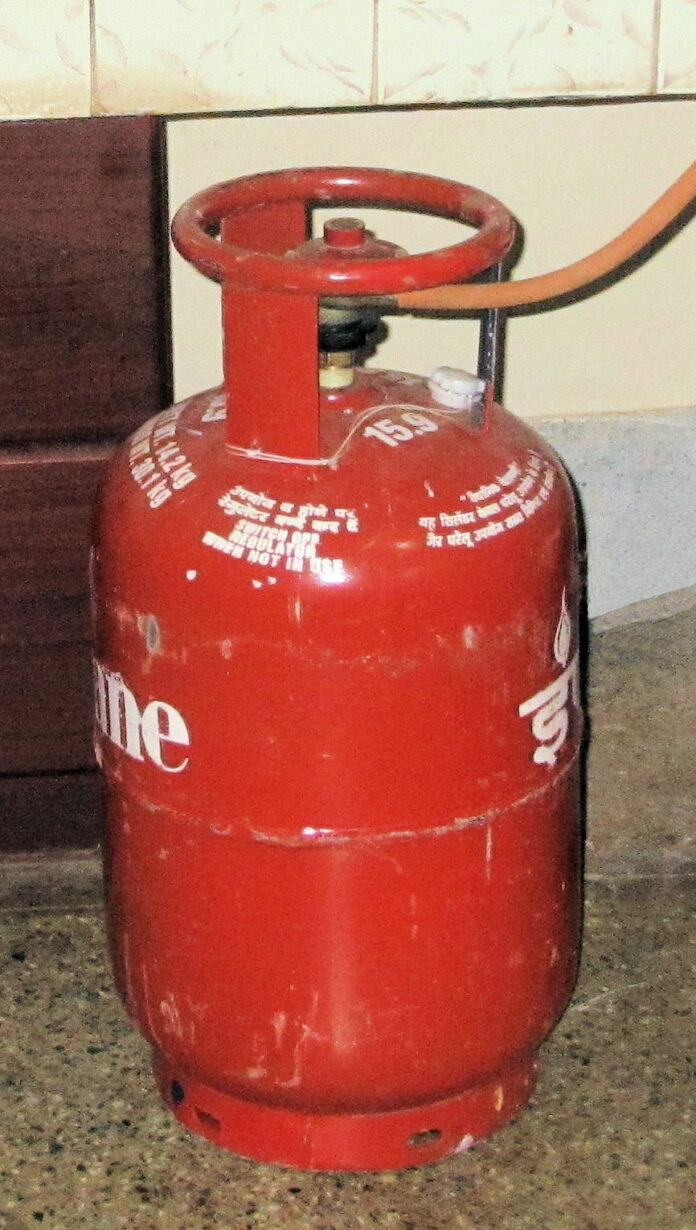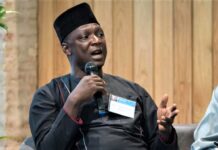By Jeph Ajobaju, Chief Copy Editor
Muhammadu Buhari has been urged by the Major Oil Marketers Association of Nigeria (MOMAN) to remove the 7.5 per cent Value Added Tax (VAT) cooking gas reintroduced last month which has more than doubled the price in eight months.
Abuja had in 2019 gazetted the removal of VAT on cooking gas to increase its domestic utilisation, but in August this year reintroduced and backdated it, piling cost pressure on both marketers and consumers.
MOMAN – major stakeholders in the oil downstream sector – warned that taxing cooking gas will hinder its usage and scuttle the government’s ‘Decade of Gas’ agenda.
Per reporting by ThisDay, MOMAN Chairman and Ardova Chief Executive Officer Olumide Adeosun made the point in Lagos that “unfortunately, we still don’t produce sufficient domestic LPG [Liquefied Petroleum Gas, commonly known as cooking gas].
“We are having to do a lot of imports and we are seeing a spike globally in the price of LPG. Domestically, what can we do? I think there have been discussions around the VAT that has been levied on the product.
“I think one of the big discussions that is going on right now is how that can be eliminated because the tax naturally creates a barrier to the objectives of the Decade of Gas, which is to increase the penetration and adoption of LPG, among other things, as an alternative to biomass.
“So, we are hoping that there will be some headway being made in that direction.”
Adeosun said MOMA would continue to advocate for changes that would positively impact the sector and the overall economy.
“Making the transition to a fully competitive pricing oriented downstream sector will require the collective engagement and resolve of all stakeholders.
“The world around us is changing rapidly and the oil and gas industry has been proven to be one of the most exposed to the winds of this change.’’
DPR vs marketers
Nairametrics adds that the Department of Petroleum Resources (DPR) and marketers are at loggerheads over the reintroduction of VAT on cooking gas.
DPR Director Sarki Auwalu said the government had to reimpose VAT on imported LPG to attract investment to local production.
The price of cooking gas 12.5 kg cylinder refill, which was N3,500 in December 2020, shot up to N6,000 in July this year and N7,200 in August.
Marketers blame the hike on several factors, including inadequate supply, inflation, foreign exchange scarcity/naira devaluation, and arbitrary charges by government agencies, now compounded by the reintroduction of VAT.
Nigerians return to firewood, charcoal
Marketer have projected that the price of 12.5kg cylinder refill may reach N10,000 by this December if the 7.5 per cent VAT is not removed.
In cities and semiurban areas, middle consumers in large numbers have returned to the use of firewood and charcoal to cook food in homes and restaurants, posing environmental hazards besides the unbearable financial cost.
Petroleum Resources Minister of State, Timipre Sylva, says LPG is deregulated by the government and it cannot remove the VAT – even if that means reducing human hardship.
Average price per litre of kerosene increased from N370.29 in June to N370.34 in July, according to National Bureau of Statistics (NBS) data, the price rising 7.31 per cent month-on-month (MoM) and 18.42 per cent year-on-year (YoY).
However, the real market price of kerosene, an alternative to cooking gas used by the poor, is N2,000 per five-litre keg. Which makes the street price N400 per litre.
Gross Domestic Product (GDP) rose 5.01 per cent YoY in the second quarter of 2021 (Q2 2021), in three straight quarters of growth after slumps in Q2 2020 and Q3 2020, says the NBS.
But the GDP figure contradicts the lived experience of Nigerians who have been getting poorer since Buhari became President six years ago.
By March this year, Buhari alone had obtained N12.31 trillion loans for Nigeria since June 2015, and plans to borrow more from local and foreign lenders.
Nigeria’s debt rose by N20.8 trillion to N32.92 trillion between June 2015 and December 2020, and to N33.11 trillion Q1 2021, as compiled by the Debt Management Office (DMO).
Debt servicing alone cost N1.8 trillion between January and May, not counting repayment of principal.
Buhari taxes citizens to repay wasted or stolen loans
Buhari is taxing Nigerians to death to service or repay loans taken by him, most of which get wasted or government officials steal through fictitious or inflated real contracts, or steal directly by dipping their hands in the till.
And he does not prosecute the thieves, some of whom are in his cabinet.
Buhari’s negligence as well as direct and indirect taxation have been stoking up every week – if not every day – since 2020 the prices of food, housing, transportation, health care, education, and all of other basic human necessities.
Last month, the Socio-Economic Rights and Accountability Project (SERAP) filed a lawsuit against him for failing to probe N106 billion officially declared missing from 149 ministries, departments and agencies (MDAs).
Part of the grouse in the suit filed at the Federal High Court in Abuja is that Buhari failed to prosecute those responsible for the fraud and recover the missing public funds to reduce the pressure of borrowing more money.
The suit is sequel to confirmation by the Office of the federal Auditor General in its 2018 annual audited report that N105,662,350,077.46 of public funds are missing, misappropriated or unaccounted for across 149 MDAs, per Premium Times.
Buhari on Tuesday wrote to the National Assembly (NASS) to approve new loans of $4 billion and €710 million to be obtained from bilateral and multilateral organisations to fund the deficit in the 2021 budget.
The letter, written to the Senate, also asked lawmakers to approve grant components of $125 million. It explained that more borrowings are needed to meet “emerging needs” of some “critical projects.”















